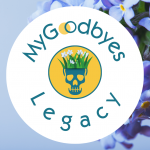Discussing end-of-life (“eol”) planning with loved ones is a sensitive task. The concept of mortality, for ourselves and those we care about, can be overwhelming. Conflicts and concerns can arise during this process. Long-standing issues may resurface when we consider the possibility of losing someone, or we may disagree with a person’s eol plan but hesitate to address it. We fear broaching these topics, which can lead to deeper family conflicts after someone has died.
If you have been postponing the completion of your eol plans due to concerns about unresolved issues or new conflicts arising during the planning process, we are here to help. In this post, we’ll explore the importance of addressing conflict before it’s too late and provide tips for initiating these discussions. Take a moment to consider the following recommendations:
People often make decisions uninformed: One reason conflicts can arise is that people may not fully understand their options or the potential consequences of their decisions. As a loved one, you can provide support by providing information and resources that will help inform their decision-making process. Hosting a MyGoodbyes party is a good way to get started on sharing information.
The decision rests in their hands: Ultimately, as long as someone has the capacity to make decisions, they have the ability to participate in eol planning. Even if their decisions create issues or conflicts within your group, it’s important to respect your loved one’s agency and autonomy.
Give yourself space and time: It’s natural to react emotionally when faced with difficult conversations. Before jumping into a potentially contentious conversation, it’s a good idea to give yourself some space and time to process your own emotions. This will help ensure that you approach the conversation with a clear and level head.
Acceptance is sometimes better than conflict: While it’s important to address conflicts and unresolved issues, it’s also important to remember that some things cannot be changed. Sometimes acceptance is the best course of action, rather than escalating a situation into a conflict.
You don’t need to go it alone: Addressing conflicts during eol planning can be challenging. Remember, you don’t have to do it alone. There are resources available to help, including eol planners, and if things really break down, elder mediators who specialise in helping families navigate complex end of life planning conversations.
Addressing unresolved issues and conflicts during eol planning can be tough, but it’s important to remember that these conversations can have a significant impact on the lives of our loved ones after we’re gone, with families often drifting apart due to tensions left unresolved. By providing support, giving yourself time and space, focusing on acceptance where needed, respecting autonomy, and seeking out resources, we can approach these conversations with compassion and understanding and avoid future conflict.




 Choosing a Funeral Director
Choosing a Funeral Director  Alt:Endings
Alt:Endings  How to Balance Work and Life After A Break
How to Balance Work and Life After A Break  MyGoodbyes Party – Picnic in the Park
MyGoodbyes Party – Picnic in the Park  Planting Memories with Forget Me Not Seeds #ForgetMeNotChallenge
Planting Memories with Forget Me Not Seeds #ForgetMeNotChallenge  Family history and legacy
Family history and legacy  The Briefing: Vicki Gulliver Head of the Probate team at Lodders
The Briefing: Vicki Gulliver Head of the Probate team at Lodders  Words With….David Hieatt
Words With….David Hieatt